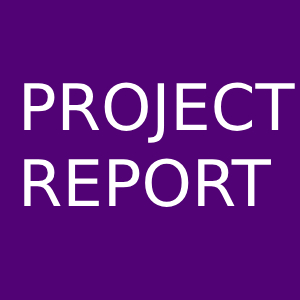MBA Solved Project Marketing Management (Unique)
NMIMS MBA Project Marketing Management:
A research-based practical report that demonstrates the ability to apply marketing theories and concepts to a genuine business problem or opportunity is known as an MBA Project in Marketing Management.
It is typically completed during the final semester of your MBA and is worth a substantial amount of credit (typically 100 marks or 20–30% of the overall evaluation).
The goal is to demonstrate: ✅ Understanding of marketing principles, ✅ Ability to analyze market situations, ✅ Research and data interpretation skills, ✅ Capability to suggest realistic business recommendations.
Project Objective
The objective of your undertaking is to:
Integrate classroom theory with practical marketing strategies
Identify and resolve a marketing challenge that a company or industry is currently experiencing.
Perform market research (primary or secondary data)
Propose strategic enhancements that are supported by analysis.
MBA Marketing Management Projects’ Most Popular Subjects
The following are some authorized and trending topics that are relevant for the years 2024–2025:
Consumer Perception of Green Marketing in the FMCG Industry
Effectiveness of Digital Marketing Strategies in Enhancing Brand Awareness (Case Study: Nykaa, Swiggy, and Zomato)
Customer Satisfaction with Online Food Delivery Services in India
The Influence of Influencer Marketing on the Purchase Decisions of Generation Z
Research on Brand Loyalty in the Smartphone Market (Apple vs. Samsung)
The efficacy of social media campaigns in the automotive industry
Consumer Attitudes Toward Corporate Social Responsibility (CSR) Activities of Multinational Corporations in India (Your Present Project Topic)
Examination of Consumer Purchase Behavior in Relation to E-Commerce Platforms
The framework of an MBA marketing management project report is as follows:
The standard NMIMS / Jain / MUJ format that is applicable to the majority of universities is as follows:
1. Title Page
Title of the Project
Your Name, Enrollment Number, Course, Semester
Name of the University
Name of Supervisor or Guide
2. Declaration and Certificate
The student’s declaration that the work is original
Certificate from the project instructions
3. Acknowledgment
I am grateful to the faculty, adviser, and institution.
4. Executive Summary (Abstract)
A concise summary (200–300 words) that summarizes the project’s objectives, methods, findings, and conclusions.
5. Introduction
A concise overview of the company or industry that was selected
Relevance and necessity of the investigation
6. Literature Review
Summary of prior research or theories that are pertinent to your subject matter (e.g., brand equity, digital marketing, consumer behavior).
7. Research Methodology
Descriptive/exploratory research design
Data Acquisition: Primary (survey/interview) or Secondary (reports, websites)
For instance, a sample size of 100 respondents.
Random/Convenience Sampling Methodology
Instruments Employed: Excel, SPSS, charts, graphs, and questionnaires
8. Interpretation and Analysis of Data
Utilize tables, pie charts, and bar graphs to visually represent your data.
Utilize statistical instruments (e.g., correlation, mean, and percentage) to analyze the data.
Interpret the results in a logical manner.
9. Findings
Summarize the most significant findings (e.g., “70% of respondents prefer online purchases that are influenced by social media ads”).
10. Conclusion and Suggestions
In conclusion, summarize the teachings that have been acquired
Provide practical strategies, such as enhancing customer retention, implementing digital campaigns, and establishing a pricing strategy.
11. Bibliography / References:



Reviews
There are no reviews yet.